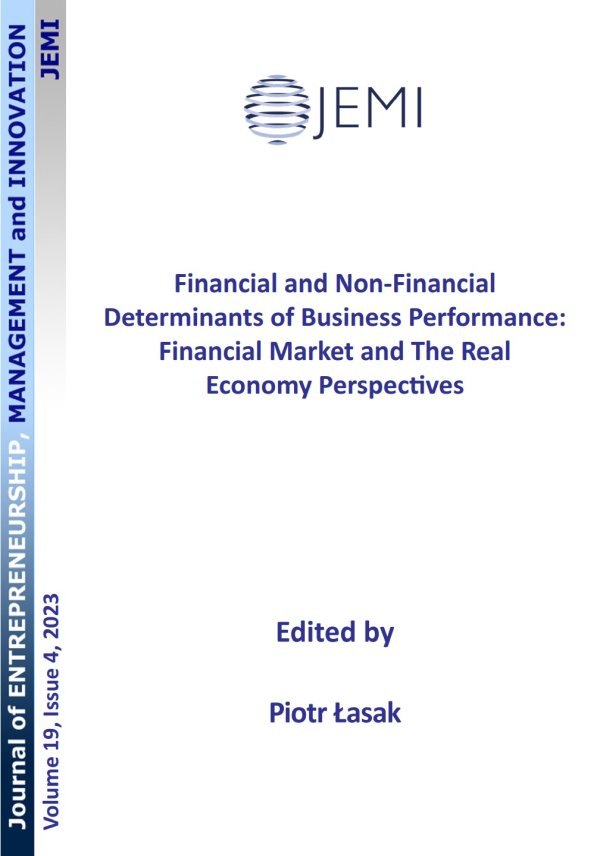Results of competitive dynamics: Examination of the factors determining the operational and financial performance of airlines: The case of the Turkish international airline market
Results of competitive dynamics: Examination of the factors determining the operational and financial performance of airlines: The case of the Turkish international airline market
Author(s): Mehmet Yaşar, Ender GeredeSubject(s): Economy, Financial Markets
Published by: Fundacja Upowszechniająca Wiedzę i Naukę "Cognitione"
Keywords: competitive dynamics; competition; strategic management; airline companies; panel data analysis; financial performance; operational performance
Summary/Abstract: PURPOSE: Firms that want to obtain an advantageous market position and a sustainable long-term competitive advantage in a competitive market place are engaged in competitive behavior in order to realize these goals. Competitive behavior is realized by competitive moves that they have made under real market conditions or by reactions (retaliation) against these moves. Those who initiate the action (Actors), those who respond to the actions (Responders) and competitive actions constitute the competitive dynamics of an industry. The results of the competitive actions carried out within the scope of competitive dynamics are monitored within the scope of market performance. The aim of this study is to reveal the factors that affect the operational and financial market performance of airline companies competing in the Turkish international airline market. METHODOLOGY: In this context, 26 airlines competing in the Turkish international airline market were evaluated in the context of rival pairs between 2009 and 2018. The analysis of the models designed in the study was carried out by panel regression analysis. FINDINGS: The findings obtained in the study show the relative market share gain of airlines is positively influenced by their firm maturity, relative size, financial resources, total number of flights, and fleet homogeneity, it is negatively impacted by their capability to deploy resources. According to research, the relative Revenue Passenger Kilometers is positively impacted by the relative size of the airlines, the same business model, and Load Factor, but negatively impacted by resource deployment capability and competing in the same alliance. While the resource allocation capability and efficiency of the airlines have a positive effect on the net result, firm maturity and total number of flights have a negative effect. It has been revealed that the resource deployment capability of airlines and efficiency of airline firm have a positive effect on financial performance, while firm maturity, the total number of flights, and slack resources have a negative effect. IMPLICATIONS: By introducing additional variables—such as fleet homogeneity, business model, strategic alliances, and codesharing – to the variables utilized in prior studies, this research is expected to add to the body of knowledge on competitive dynamics. Airlines will be guided in and before their actions in a competitive marketplace by understanding the circumstances in which they will demonstrate greater operational and financial performance than their rivals. ORIGINALITY AND VALUE: Knowing in which situations airlines will show better operational and financial performance against their competitors will guide them in and before their actions in a competitive marketplace.
Journal: Journal of Entrepreneurship, Management and Innovation
- Issue Year: 19/2023
- Issue No: 4
- Page Range: 111-145
- Page Count: 35
- Language: English

